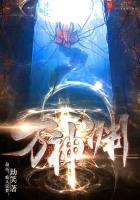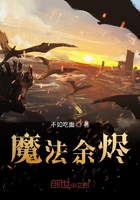Nicolou's vessel, together with four of the craft which had been left unmanned, broke from her moorings, and all five of the vessels were carried out seaward. The town is on a salient point at the southern side of the bay, so that "that Admiral" was close under the eyes of the inhabitants and the shore-gone sailors when he gallantly drifted out at the head of his little fleet. If Nicolou could not entirely control the manoeuvres of the squadron, there was at least no human power to divide his authority, and thus it was that he took rank as "Admiral." Nicolou cut his cable, and thus for the time saved his vessel; for the rest of the fleet under his command were quickly wrecked, whilst "the Admiral" got away clear to the open sea. The violence of the squall soon passed off, but Nicolou felt that his chance of one day resigning his high duties as an admiral for the enjoyments of private life on the steadfast shore mainly depended upon his success in working the brig with his own hands, so after calling on his namesake, the saint (not for the first time, Itake it), he got up some canvas, and took the helm: he became equal, he told us, to a score of Nicolous, and the vessel, as he said, was "manned with his terrors." For two days, it seems, he cruised at large, but at last, either by his seamanship, or by the natural instinct of the Greek mariners for finding land, he brought his craft close to an unknown shore, that promised well for his purpose of running in the vessel; and he was preparing to give her a good berth on the beach, when he saw a gang of ferocious-looking fellows coming down to the point for which he was ******. Poor Nicolou was a perfectly unlettered and untutored genius, and for that reason, perhaps, a keen listener to tales of terror. His mind had been impressed with some horrible legend of cannibalism, and he now did not doubt for a moment that the men awaiting him on the beach were the monsters at whom he had shuddered in the days of his childhood. The coast on which Nicolou was running his vessel was somewhere, I fancy, at the foot of the Anzairie Mountains, and the fellows who were preparing to give him a reception were probably very rough specimens of humanity. It is likely enough that they might have given themselves the trouble of putting "the Admiral" to death, for the purpose of simplifying their claim to the vessel and preventing litigation, but the notion of their cannibalism was of course utterly unfounded. Nicolou's terror had, however, so graven the idea on his mind, that he could never afterwards dismiss it. Having once determined the character of his expectant hosts, the Admiral naturally thought that it would he better to keep their dinner waiting any length of time than to attend their feast in the character of a roasted Greek, so he put about his vessel, and tempted the deep once more. After a further cruise the lonely commander ran his vessel upon some rocks at another part of the coast, where she was lost with all her treasures, and Nicolou was but too glad to scramble ashore, though without one dollar in his girdle. These adventures seem flat enough as I repeat them, but the hero expressed his terrors by such odd terms of speech, and such strangely humorous gestures, that the story came from his lips with an unfailing zest, so that the crew, who had heard the tale so often, could still enjoy to their hearts' content the rich fright of the Admiral, and still shuddered with unabated horror when he came to the loss of the dollars.
Hanmer.
The power of listening to long stories (for which, by-the-bye, I am giving you large credit) is common, I fancy, to most sailors, and the Greeks have it to a high degree, for they can be perfectly patient under a narrative of two or three hours' duration. These long stories are mostly founded upon Oriental topics, and in one of them I recognised with some alteration an old friend of the "Arabian Nights." Iinquired as to the source from which the story had been derived, and the crew all agreed that it had been handed down unwritten from Greek to Greek. Their account of the matter does not, perhaps, go very far towards showing the real origin of the tale; but when I afterwards took up the "Arabian Nights," I became strongly impressed with a notion that they must have sprung from the brain of a Greek. It seems to me that these stories, whilst they disclose a complete and habitual KNOWLEDGE of things Asiatic, have about them so much of freshness and life, so much of the stirring and volatile European character, that they cannot have owed their conception to a mere Oriental, who for creative purposes is a thing dead and dry - a mental mummy, that may have been a live king just after the Flood, but has since lain balmed in spice. At the time of the Caliphat the Greek race was familiar enough to Baghdad: they were the merchants, the pedlars, the barbers, and intriguers-general of south-western Asia, and therefore the Oriental materials with which the Arabian tales were wrought must have been completely at the command of the inventive people to whom I would attribute their origin.
We were nearing the isle of Cyprus when there arose half a gale of wind, with a heavy chopping sea. My Greek seamen considered that the weather amounted not to a half, but to an integral gale of wind at the very least, so they put up the helm, and scudded for twenty hours. When we neared the mainland of Anadoli the gale ceased, and a favourable breeze sprung up, which brought us off Cyprus once more. Afterwards the wind changed again, but we were still able to lay our course by sailing close-hauled.
We were at length in such a position, that by holding on our course for about half-an-hour we should get under the lee of the island and find ourselves in smooth water, but the wind had been gradually freshening; it now blew hard, and there was a heavy sea running.
As the grounds for alarm arose, the crew gathered together in one close group; they stood pale and grim under their hooded capotes like monks awaiting a massacre, anxiously looking by turns along the pathway of the storm and then upon each other, and then upon the eye of the captain who stood by the helmsman. Presently the Hydriot came aft, more moody than ever, the bearer of fierce remonstrance against the continuing of the struggle; he received a resolute answer, and still we held our course. Soon there came a heavy sea, that caught the bow of the brigantine as she lay jammed in betwixt the waves; she bowed her head low under the waters, and shuddered through all her timbers, then gallantly stood up again over the striving sea, with bowsprit entire. But where were the crew? It was a crew no longer, but rather a gathering of Greek citizens; the shout of the seamen was changed for the murmuring of the people - the spirit of the old Demos was alive. The men came aft in a body, and loudly asked that the vessel should be put about, and that the storm be no longer tempted. Now, then, for speeches. The captain, his eyes flashing fire, his frame all quivering with emotion - wielding his every limb, like another and a louder voice, pours forth the eloquent torrent of his threats and his reasons, his commands and his prayers; he promises, he vows, he swears that there is safety in holding on - safety, IFGREEKS WILL BE BRAVE! The men hear and are moved; but the gale rouses itself once more, and again the raging sea comes trampling over the timbers that are the life of all. The fierce Hydriot advances one step nearer to the captain, and the angry growl of the people goes floating down the wind, but they listen; they waver once more, and once more resolve, then waver again, thus doubtfully hanging between the terrors of the storm and the persuasion of glorious speech, as though it were the Athenian that talked, and Philip of Macedon that thundered on the weather-bow.
Brave thoughts winged on Grecian words gained their natural mastery over terror; the brigantine held on her course, and reached smooth water at last. I landed at Limasol, the westernmost port of Cyprus, leaving the vessel to sail for Larnaka, where she was to remain for some days.















